Note from the Editors: The website of the Global Network of Psychologists for Human Rights (GNPHR) contains articles, events and news about the domain where psychology and human rights intersect. The information presented in this Bulletin is gathered from many sources and reflects many opinions. The publication of information does not imply that the GNPHR as a network, the GNPHR Steering Committee as a committee, or the individual subscribers share the views and beliefs expressed. The goal of the many opinions expressed is to stimulate reflection, discussion, and informed dialogue.


Table of Contents
SPECIAL FOCUS: International Day for the Elimination of Violence against Women (and Men) 25 November
GNPHR is collecting a variety of articles, opinion pieces and analyses of the situation in Gaza.
SPECIAL SECTION
SPECIAL FOCUS: International Day for the Elimination of Violence against Women 25 November.
Taking a Stand Against Gender-Based Violence
Despite the adoption of the Convention of the Elimination of All Forms of Discrimination against Women (CEDAW) by the UN General Assembly in 1979, violence against women and girls remains a pervasive problem worldwide. To that end, the General Assembly issued resolution 48/104, laying the foundation for the road towards a world free of gender-based violence.
Another bold step in the right direction was embodied by an initiative launched in 2008 and known as the UNiTE to End Violence against Women. It aims to raise public awareness around the issue as well as increase both policymaking and resources dedicated to ending violence against women and girls worldwide. Yet, there is still a long way to go at the global scale. To date, only two out of three countries have outlawed domestic violence, while 37 countries worldwide still exempt rape perpetrators from prosecution if they are married to or eventually marry the victim and 49 countries currently have no laws protecting women from domestic violence.
16 Days of Activism against Gender-Based Violence.
WHO International – 25 November to 10 December – 2023
Ending violence against women is possible, but only if we act together, now.
The global 16 Days of Activism against Gender-Based Violence is a key international moment to call for an end to violence against women and girls. It runs from 25th November (the International Day for the Elimination of Violence Against Women) until 10th December, Human Rights Day.
In support of this campaign, the United Nations Secretary-General’s UNiTE by 2030 initiative calls for global action to increase awareness, galvanise advocacy efforts and share knowledge and innovations to help end all types of violence against women and girls. In 2023, the UNiTE campaign theme is Invest to Prevent Violence against Women & Girls.
In every country and culture, more action is needed to ensure women in all their diversity live free of violence and coercion. Health impacts of violence can last a lifetime, affecting physical, mental, sexual, and reproductive health. WHO plays a key role in bringing attention to and responding to violence against women as a public health, gender equality and human rights issue. Content note: https://www.unwomen.org/sites/default/files/2023-09/UNiTE_16%20Days_2023_Concept%20Note%20%28English%29.pdf
Annual campaign to end violence against women begins in Japan as buildings lit up in purple
The Mainichi, 13 November 2023.
TOKYO — A campaign for the elimination of violence against women kicked off in Japan on Nov. 12 and facilities across the country, including Tokyo Skytree, were lit up in purple to represent the movement’s symbol color.
The annual “purple ribbon” awareness program aims to end domestic violence and sex crimes against women and runs until Nov. 25, the International Day for the Elimination of Violence Against Women, as designated by the United Nations. The national and local governments are working to raise awareness, and more than 400 facilities are expected to be illuminated during the two-week period.
On Nov. 12, at 5 p.m., the white exterior walls of the main building of the State Guest House, Akasaka Palace in Tokyo’s Minato Ward, were blanketed in purple light.
In 2022, police in Japan received 84,496 domestic violence consultations, up 1.8% from the previous year and marking a new high for the 19th consecutive year. To address these incidents, the revised domestic violence prevention law will go into effect in April 2024, which expands the scope of “protection orders” to include not only physical violence but also psychological violence, in which the victim is pressured by words and attitudes. When a “protection order” is issued, the perpetrator is prohibited from approaching the victim.
The purple ribbon campaign is a grassroots movement born in the United States in 1994 by victims of violence against women that has now spread internationally.
GNPHR November Opinion Column / Blog

Blog Refugees and sexual violence, by Dr. Marian Tankink, Medical Anthropologist and Independent Consultant, specialised in Research and Training on Gender, Violence, Peacebuilding and Mental Health.
GNPHR NEWS AND EVENTS
GNPHR Announces New Award
 Education in Human Rights & Psychology Recognition Award.
Education in Human Rights & Psychology Recognition Award.
This award acknowledges outstanding educational materials for human rights education for psychologists. See more and submit a nomination here: Education in Human Rights Award
Psychology Organizations and Human Rights
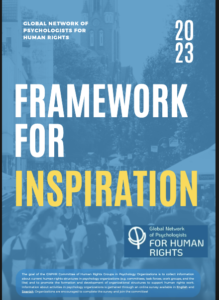
- GNPHR published a guiding document for psychology associations that want to begin or engage a human rights committee / task force / section. Read it here: Framework for Inspiration
- Network Human Rights and Psychology Groups is open to representatives of psychology associations that have established a committee, office, or subgroup focused on psychology and human rights. If you are interested in joining the group please register your interest (1) here; (2) link for the minutes; (3) presentation about human rights and ethics.
- Webinar Series Human Rights Education – Next Webinar: Thursday January 25, 2024. For the past Webinars, see: https://humanrightspsychology.org/webinars/
CONTENT AREAS AND NEWS
General
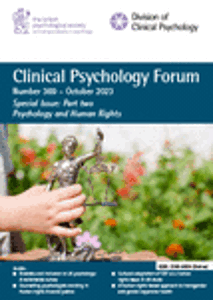
Clinical Psychology Forum. Number 369 – October 2023. Special Issue part two: Psychology and Human Rights. Editors: Jodie Rawlings & Tony Wainwright. Open Access:
https://explore.bps.org.uk/content/bpscpf/1/369/local/complete-issue.pdf
Why we can’t wait – Martin Luther King lecture 2023
Vrije Universiteit, Amsterdam, 9 October 2023. Dreaming and acting in the spirit of Martin Luther King.
In the Martin Luther King Lecture on 9 October, visiting professor Anthony Bogues called for taking as an example not the dreaming, but the radical Martin Luther King, and addressing the problems of our present time. ‘Action is what makes us stand out as human beings.’
Response by minister Frank Weerwind
Response to the Martin Luther King Lecture by Dr. Pepijn Brandon
Internationally Recognized Human Rights and Psychology: Annotated Bibliography (2000-2015). Publications covering a variety of rights issues, with particular attention to disability rights, children’s rights and personal integrity rights.
Linguistic Human Rights.
Tove Skutnabb-Kangas (updated 2016). In Solan, Larry and Tiersma, Peter (eds). Oxford Handbook on Language and Law. Oxford: Oxford University Press, 235-247.
People who lose their linguistic and cultural identity may lose an essential element in a social process that commonly teaches respect for nature and understanding of the natural environment and its processes. Forcing this cultural and linguistic conversion on Indigenous and other traditional peoples not only violates their human rights, but also undermines the health of the world’s ecosystems and the goals of nature conservation (www.terralingua.org).
Linguistic human rights are a necessary but NOT sufficient tool in the struggle for social justice.
Ontology and human rights
M. Ajei, South African Journal of Philosophy, January 2019.
This paper examines the question of whether human rights are related to ontology. It examines perspectives on this question from human rights theories in the Western and African traditions of philosophy and defends the thesis that a good account of human rights requires an explicit ontology of the human, and that taking this seriously engenders divergent conclusions about what rights are. It then proceeds to claim that the African Charter on Human and Peoples’ Rights adds substantive features to the International Bill of Human Rights, and that the Charter expresses Kwame Gyekye’s ontology of the human being.
World Dignity University
Dear-Friend–Dignity-Letter—Celebrating-20-Years-of-Collaborative-Global-Action
Dignity Letter, September 2023
Aging
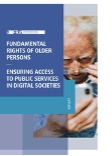 Fundamental rights of older people: ensuring access to public services in digital societies. Europe’s ageing population is ever-increasing, and our societies are becoming more digitalised. Many public services are now available online, with many more services in the process of being digitalised. But the digitalisation of public services poses a risk of exclusion for older persons. In this new report, FRA explores the impact of digitalisation on the fundamental rights of older persons. The report maps the current legislation, policies and practices fostering digital inclusion. It provides an overview of the laws at the national level that provide for equal access to public services, both online and offline. The findings show how Member States safeguard older person’s rights to access services undergoing digitalisation. It outlines how Member States can support digital skills and ensure older people can fully participate in public life.
Fundamental rights of older people: ensuring access to public services in digital societies. Europe’s ageing population is ever-increasing, and our societies are becoming more digitalised. Many public services are now available online, with many more services in the process of being digitalised. But the digitalisation of public services poses a risk of exclusion for older persons. In this new report, FRA explores the impact of digitalisation on the fundamental rights of older persons. The report maps the current legislation, policies and practices fostering digital inclusion. It provides an overview of the laws at the national level that provide for equal access to public services, both online and offline. The findings show how Member States safeguard older person’s rights to access services undergoing digitalisation. It outlines how Member States can support digital skills and ensure older people can fully participate in public life.
Academic Freedom / Higher Education
Free to Think 2023: Suppression of dissent and spread of illiberalism threatens academic freedom and endangers democracy
SAR, October 31, 2023.
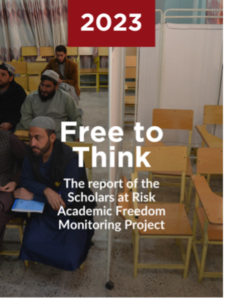 Scholars at Risk (SAR) announces the release of Free To Think 2023, a report analyzing 409 attacks on the higher education community in 66 countries and territories, between July 1, 2022, and June 30, 2023. The report highlights how attacks on academic freedom threaten democratic society and social progress more broadly, and calls on stakeholders to create robust protections for scholars, students, and higher education institutions.
Scholars at Risk (SAR) announces the release of Free To Think 2023, a report analyzing 409 attacks on the higher education community in 66 countries and territories, between July 1, 2022, and June 30, 2023. The report highlights how attacks on academic freedom threaten democratic society and social progress more broadly, and calls on stakeholders to create robust protections for scholars, students, and higher education institutions.
“The past year has seen targeted efforts to quell dissent and restrict free discourse,” said Robert Quinn, SAR Executive Director, referring to the report’s analysis of attacks intended to silence the global higher education sector. These range from violent attacks such as Iranian authorities’ use of force to suppress student participation in the “Women, Life, Freedom” protest movement; to coercive attacks, such as a substantial influx of newly proposed legislation aimed at restricting the teaching of disfavored topics in the United States. “These attacks illustrate the erosion of academic freedom and university autonomy and the shrinking space for discourse and sharing ideas.
In defense of the freedom to speak out against genocide
Judith Butler, 1 November 2023. Judith Butler writes the leadership of Hebrew University in defense of renowned scholar Dr. Nadera Shalhoub-Kevorkian, who has faced intimidation and pressure to resign since signing a letter calling for a ceasefire in Gaza.
Internationally renowned scholar Dr. Nadera Shalhoub-Kevorkian has been under fire since joining over 1,000 child researchers in signing a call for an immediate ceasefire in Gaza () . Following her signature, the leadership of Hebrew University of Jerusalem sent Dr. Shalhoub-Kevorkian a letter denouncing her and pressuring her to resign. This letter was then leaked to the media, including major Israeli television channels, and Dr. Shalhoub-Kevorkian has subsequently been the target of a public hate campaign.
In response, an international letter-writing movement has begun in Dr. Shalhoub-Kevorkian’s defense. Below is a letter from Dr. Judith Butler, Distinguished Professor in the Graduate School at the University of California-Berkeley, to Hebrew University leadership that illuminates the legal and moral meaning of genocide and the obligation of university administrators to uphold academic freedom.
Climate Justice
Children at ‘existential risk’ from climate crisis
Andrew Gregory, Health editor, The Guardian, 21 October 2023.
Exclusive: Physical and mental impact on young people needs immediate action, Dr Camilla Kingdon says.
The climate crisis poses an “existential risk” to the health and wellbeing of all children and action to tackle it is needed immediately, Britain’s most senior paediatrician has said.
In a major intervention, Dr Camilla Kingdon, the president of the Royal College of Paediatrics and Child Health (RCPCH), said every adolescent was at grave risk from the physical and mental effects of the climate crisis. Healthcare professionals were already seeing its impact first-hand, she added. Air pollution, extreme weather and unprecedented energy costs were having a very real and detrimental effect on millions of children, she said. But as a country we have our “heads in the sand” when it comes to the climate crisis.
Kingdon said: “Every child is at grave risk of the effects of our changing climate, but none more so than children in lower-income families. These children are facing an increased mortality risk from extreme weather events, exacerbated respiratory conditions from dirty air and even increased rates of cancer, diabetes and obesity.
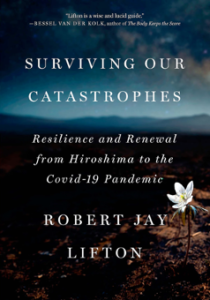 How to Maintain Hope in an Age of Catastrophe
How to Maintain Hope in an Age of Catastrophe
Masha Gessen, The NEW YORKER, November 12, 2023.
The psychoanalyst and author Robert Jay Lifton on what seventy years of studying both the victims and the perpetrators of horror has taught him about the human will to survive. In the first half century of his career, Robert Jay Lifton published five books based on long-term studies of seemingly vastly different topics.
Lifton is fascinated by the range and plasticity of the human mind, its ability to contort to the demands of totalitarian control, to find justification for the unimaginable—the Holocaust, war crimes, the atomic bomb—and yet recover, and reconjure hope. In a century when humanity discovered its capacity for mass destruction, Lifton studied the psychology of both the victims and the perpetrators of horror. “We are all survivors of Hiroshima, and, in our imaginations, of future nuclear holocaust,” he wrote at the end of “Death in Life.” How do we live with such knowledge? When does it lead to more atrocities and when does it result in what Lifton called, in a later book, “species-wide agreement”?
His latest book: Surviving Our Catastrophes. Resilience and Renewal From Hiroshima to the Covid-19 Pandemic. Robert Jay Lifton, New Press, September 2023.
Crimes against humanity
Alabama Sculpture Park Aims to Look at Slavery Without Flinching
Hilarie M. Sheets, October 11, 2023, NY Times.
The new Freedom Monument Sculpture Park, opening in early 2024 in Montgomery, Ala., arrives at a time when Black history is being debated in many states. When the Freedom Monument Sculpture Park opens in Montgomery, Ala., in early 2024, on a bluff flanked by railroad tracks overlooking the Alabama River, visitors will be able to arrive by boat — retracing the footsteps of tens of thousands of Africans horrifically shipped, sold, then transported by rail in the 19th century.
The park is intended to take viewers on an unflinching and moving journey through the story of slavery, at a time when what can be taught in schools about Black history is being debated in many states across the country — including Alabama. The centerpiece will be a new national monument commemorating freedom: a 43-foot-tall, 150-foot-long wall, angled like an open book and inscribed with more than 120,000 distinct surnames documented in the 1870 census that were chosen by four million Black people emancipated after the Civil War. (“Washington” was most widely selected by people known previously only by their first names.)
For the approach to the monument, set in a clearing, there will be 48 sculptures by 27 artists — Wangechi Mutu, Theaster Gates, Rashid Johnson and Kehinde Wiley, among others. Their works, more typically displayed in the white cube of a contemporary art space, will be encountered in the wooded landscape along a circular route, punctuated with 18 collected artifacts and visual exhibits including a whipping post and two plantation dwellings once inhabited by enslaved people.
Decolonization / Indigenization
Crushing Indigenous Hopes, Australia Rejects ‘Voice’ Referendum
Yan Zhuang, NY Times, October 13, 2023.
The proposed Indigenous Voice to Parliament was widely supported by Indigenous voters, but had raised fears and hopes that were both overblown. Sitting on the banks of the Fitzroy River in remote Western Australia, watching a plume of smoke swirling into the air from a distant wildfire, the Aboriginal elder lamented how his parents’ generation had worked for sugar, flour and tea, not wages, and how his community now relies heavily on welfare after employment programs were withdrawn by the government.
But, “we’ve got something coming,” Hector Angus Hobbs, 67, a member of the Walmajarri tribe, said earlier this week. “We’re going to win.” His optimism proved misplaced on Saturday, when the nation voted “no” on a referendum that would have given Indigenous Australians a voice in Parliament in the form of an advisory body. The proposal, polls showed, was broadly supported by the country’s Indigenous people, who make up less than 4 percent of the nation’s population. Many of them saw it as a sign of Australia taking a step to do right by them after centuries of abuse and neglect. Mr. Hobbs and many of his neighbors in the town of Fitzroy Crossing believed it would help with everything from solving everyday issues like repairs for houses, to moving the needle on weighty aspirations like reparations.
Inclusion, Exclusion, Racism
Islamophobia and antisemitism on rise in US amid Israel-Hamas war
Maya Yang, The Guardian, 10 Nov 2023.
Research shows increase in prejudice and hate as civil rights group condemns ‘unprecedented surge in bigotry.’
Islamophobia and antisemitism are seeing sharp increases across the US after war between Israel and Hamas erupted last month.
According to a new report by the Council on American-Islamic Relations (Cair), the Muslim civil rights and advocacy organization received a total of 1,283 requests for help and reports of bias between 7 October and 4 November.
Cair, which has called the spike “unprecedented”, revealed that the recent increase in Islamophobia and anti-Arab sentiment across the US mark a 216% increase over the previous year. In an average 29-day period in 2022, Cair received only 406 complaints.
Syphilis as a marker of ethno-racial inequalities in Brazil
Angelica Miranda, Rita Cassia D Lima, THE LANCET, Global Health, Volume 11, Issue 11, Open Access, November 2023
The link between ethno-racial inequality and infectious diseases is influenced by historical, socioeconomic, and structural factors. Brazil has a long history of inequalities, including those related to ethnoracial issues, rooted by the historical process of colonisation and enslavement. This process led to lasting disparities in areas like economics, culture, education, and health. These disparities translate into reduced access and effectiveness of health care and lead to worst health outcomes for some groups. The Black population in Brazil faces issues with public social policies access, including to the public health system (Sistema Único de Saúde [SUS]), highlighting racial inequalities in cases like maternal and congenital syphilis. Enny S Paixão and colleagues present the correlation between maternal and congenital syphilis and race in Brazil as being entwined with social, economic, and structural factors, rather than due to biological factors. Addressing this inequal access involves comprehensive public health strategies, including sexual education, prevention, early diagnosis, and adequate treatment for all, regardless of racial or ethnic background. Considering intersectionality, discrimination, and markers of social inequalities is crucial for confronting the discrimination that strengthens structural and institutional racism. Racial inequalities can substantially shape the health-care system’s response to syphilis in Brazil and can influence the willingness of vulnerable communities to adhere to public health strategies.
Imprisoned Nobel Winner and Iranian Rights Activist Begins a Hunger Strike
Narges Mohammadi is protesting the prison’s denial of hospital treatment for her heart condition, her family said. Farnaz Fassihi and Cassandra Vinograd, November 6, 2023.
Narges Mohammadi, the imprisoned Iranian human rights activist who won this year’s Nobel Peace Prize, began a hunger strike on Monday, after she was denied hospital treatment for two blocked coronary arteries, her family said.
Ms. Mohammadi is serving a 10-year sentence in the notorious Evin prison, on charges of “spreading propaganda against the state,” but she has continued to be a vocal critic of the government even from behind bars. Last week, she refused to cover her hair with the mandatory hijab when prison authorities wanted to transport her to a hospital. In response, they told her she would not be released for medical care, according to her husband, Taghi Rahmani.
Agenda towards transformative change for racial justice and equality. OHCHR and racism.
Advancing implementation of the Agenda towards transformative change for racial justice and equality. OHCR
In September 2023, the High Commissioner released a new report on racial justice and equality for Africans and people of African descent (see below). The latest report places a spotlight on the right to participate in public affairs for people of African descent, recognizing that its effective implementation is key to ensuring that decision-making is informed by their lived experiences and expertise, and a prerequisite to transformative change for racial justice and equality.
The High Commissioner’s 2021 report introduced a four-point agenda containing 20 actionable recommendations to end systemic racism and human rights violations by law enforcement against Africans and people of African descent. The High Commissioner calls upon States to:
- STEP UP: Reverse cultures of denial, dismantle systemic racism and accelerate the pace of action
- PURSUE JUSTICE: End impunity for human rights violations by law enforcement violations and close trust deficits
- LISTEN UP: Ensuring that the voices of people of African descent and those who stand up against racism are heard and that their concerns are acted upon
- REDRESS: Confront legacies, including through accountability and redress
Promotion and protection of the human rights and fundamental freedoms of Africans and of people of African descent against excessive use of force and other human rights violations by law enforcement officers through transformative change for racial justice and equality.
Pursuant to Human Rights Council resolution 47/21, in the present report, the United Nations High Commissioner for Human Rights places a spotlight on the right to participate in public affairs for people of African descent, recognizing that its effective implementation is key to ensuring that decision-making is informed by their lived experiences and expertise, and a prerequisite to transformative change for racial justice and equality. Furthermore, the High Commissioner provides an overview of broader developments and actions taken by States and others since July 2022.
LGBTQI+, Gender Rights
Japan Court Rules Against Mandatory Transgender Sterilization. Surgery Requirement Held to be Unconstitutional.
Kanae Doi, Japan Director, Kyle Knight, Senior Researcher, Lesbian, Gay, Bisexual, and Transgender Rights Program, HUMAN RIGHTS WATCH, October 16, 2023.
A Japanese family court has ruled that the country’s requirement that transgender people be surgically sterilized to change their legal gender is unconstitutional. The ruling is the first of its kind in Japan, and comes as the Supreme Court considers a separate case about the same issue.
Mental Health and Human Rights
WHO-OHCHR launch new guidance to improve laws addressing human rights abuses in mental health care
Human rights abuses and coercive practices in mental health care, supported by existing legislation and policies, are still far too common. Involuntary hospitalization and treatment, unsanitary living conditions and physical, psychological, and emotional abuse characterize many mental health services across the world. While many countries have sought to reform their laws, policies and services since the adoption of the United Nations Convention on the Rights of Persons with Disabilities in 2006, too few have adopted or amended the relevant laws and policies on the scale needed to end abuses and promote human rights in mental health care. “Our ambition must be to transform mental health services, not just in their reach, but in their underlying values, so that they are truly responsive to the needs and dignity of the individual. This publication offers guidance on how a rights-based approach can support the transformation needed in mental health systems” said Volker Türk, UN High Commissioner for Human Rights.
Using the guidance to adopt a right-based approach to mental health:
- Promoting more effective community-based mental health care
- Ending coercive practices
- Using the guidance to adopt a right-based approach to mental health
 Mental health, human rights and legislation: guidance and practice
Mental health, human rights and legislation: guidance and practice
WHO, October 2023
Mental health is growing as a public health priority and human rights imperative, and an increasing number of countries are wishing to adopt or reform legislation related to mental health. However, laws on mental health, currently often fail to address discrimination and human rights violations including in mental health care settings. In order to support countries in this area, the World Health Organization and the Office of the High Commissioner for Human Rights have jointly developed the publication entitled “Mental health, human rights and legislation: guidance and practice”.
The guidance proposes new objectives for law, including setting a clear mandate for mental health systems to adopt a rights-based approach. It outlines legal provisions required to promote deinstitutionalization and access to good quality, person-centred community mental health services. It highlights how laws can address stigma and discrimination and provides concrete measures on how to eliminate coercion in mental health services in favour of practices that respect people’s rights and dignity.
The Guidance also provides key information on how to adopt a human rights-based approach when reviewing, adopting, implementing and evaluating mental health related laws, and includes a practical checklist enabling countries to assess whether their laws align with current human rights standards.
The ethical conundrums of disclosing mental illness at work in India. Manik Inder Singh Sethi, Guru S Gowda, Satish Suhas, The Lancet Psychiatry, 10, 11, E28, November 2023.
Navigating the ethical complexities of disclosing mental illness at the workplace in India is a crucial concern for mental health professionals, particularly when considering the delicate balance between confidentiality, workplace productivity, and safety. Mental health professionals worldwide uphold the sanctity of confidentiality for people with mental illness, proposing self-disclosure at their discretion. However, a thoughtful approach is needed when there is a threat to the patient’s safety or risk of harm to others due to non-disclosure. This disclosure conundrum presents a multifaceted ethical challenge for mental health professionals.
Within this context, two contrasting perspectives are prevalent. The mandatory disclosure viewpoint emphasises the common good over the right to confidentiality, mainly when people with mental illness are employed in particular professions wherein the degree of risk due to non-disclosure is high, such as the members of the armed forces or pilots. However, mandatory disclosure might deter individuals from seeking help, secondary to fears about confidentiality breaches. Alternatively, an individualised approach involves mental health professionals assessing the risk associated with non-disclosure on the basis of the specific diagnosis and circumstances. This nuanced strategy acknowledges the complexity of the issue but is inherently subjective, limited by the scarcity of tailored risk assessments for diverse professions and diagnoses.
Mental health services in the Somali region of Ethiopia. Nasir Warfa, Charlotte Hanlon, Jibril I M Handuleh, Chris Willott, Mussie Abdosh Hassen and Elyas Abdulahi. The Lancet, comment| volume 10, issue 11, p824-826, November 2023.
The global burden of mental health problems and the neglect of this issue in low-income and middle-income countries were highlighted in The Lancet Series on global mental health in 2007. However, in 2023, the Somali region of Ethiopia is yet to address the gaps in tackling mental illness, as discussed at the International mental health consultation meeting (July 20, 2023, Jigjiga, Ethiopia).
Five key themes for improved mental health care for refugees and migrants.
WHO.Int
On World Mental Health Day, the World Health Organization (WHO) has released a new report entitled Mental health of refugees and migrants: risk and protective factors and access to care, outlining the latest global evidence on main factors influencing the mental health of refugees and migrants and their access to care. This is fifth report of the Global evidence review on health and migration (GEHM).
Around 1 in 8 people globally live with a mental health condition. Refugees and migrants are particularly vulnerable, as they can be exposed to various stress factors and challenges, which affect their mental health and well-being both during their journeys and on arrival. The prevalence of common mental disorders such as depression, anxiety and post-traumatic stress disorder (PTSD) tends to be higher among migrants and refugees than among host populations. Girls and women on the move have a higher risk of depression and anxiety.
“Good mental health and well-being is a right for all, including for refugees and migrants,” said Dr Santino Severoni, Director of the WHO’s Department of Health and Migration. “This report will support and strengthen health systems’ responses to the mental health needs of refugees and migrants so that they can receive quality mental health care and support in ways they find accessible, acceptable, and affordable.”
The report summarizes different risk factors and barriers refugee and migrant groups experience and outlines five key themes to be addressed in order to improve their access to mental health care:
- Community support: Evidence shows that being part of a community with a shared background and attending school are associated with lower rates of mental disorders.
- Basic needs and security. For example, an insecure legal status can contribute to poor mental health.
- Stigma:experiences of racism and discrimination are consistently associated with adverse mental health outcomes.
- Adversity and trauma. For example,extended detention is associated with increased rates of depression and PTSD.
- Access to services. Refugees and migrants often do not prioritize their mental health because they are not aware of the services available free of charge or do not accept health care due to language barriers and concerns around confidentiality.
“Refugees and migrants face many unique stressors and challenges. This report sets out the urgent need for robust policies and legislation, rooted within stronger health systems, to meet the mental health care needs of refugees and migrants,” said Dévora Kestel, WHO Director for Mental Health and Substance Use.
Migration, Refugees, Displacement, Statelessness
Rohingya: The Identity Crisis.
Najeeb Washaly, May 2019.
“The people who call themselves Rohingya are the Muslims of Mayu Frontier area, present-day Buthidaung and Maungdaw Townships of Arakan (Rakhine) State, an isolated province in the western part of Myanmar across Naaf River as boundary from Bangladesh (Chan, 2005). For the past three decades, the Rohingya have been seeking to restore their unrecognised ethnic identity, for any ethnic group has the right to identify itself or decide what name it should be called. Rohingya identity crisis began when they were divested from their cultural, national and ethnic identity in 1982, while Cheesman (2017) argues that 1982 citizenship law did not affect the Rohingya though he mentioned in the abstract that ‘people who reside in Myanmar but are collectively denied citizenship – like anyone identifying or identified as Rohingya – pursue claims to be taingyintha so as to rejoin the community.’ Recently, almost all news channels and agencies, social and human right activists, journalists etc. have addressed and tackled the Rohingya crisis. Much of the focus was on the ongoing violence and systematic ethnic cleansing committed by some fanatic Buddhists and military forces. Thus, this 21st century most outrageous tragedy has nearly prevailed all social media, depicting the worst discrimination and bloodiest atrocities ever…”
French doctors vow to ‘disobey’ bill stripping undocumented migrants of healthcare rights.
Benjamin DODMAN, FRANCE24, 13 November 2023.
A push by France’s conservative-led Senate to strip undocumented migrants of their access to free healthcare has sparked a public outcry among workers across the medical profession, many of whom have pledged to ignore a measure they describe as an ethical, sanitary and financial aberration.
Medical practitioners voiced their dismay in a flurry of media statements after senators from the right-wing Les Républicains amended a government-sponsored immigration bill last week to axe a scheme known as State Medical Aid (AME) – which provides free healthcare to undocumented migrants who have settled in France.
The amended bill, which will be examined by the National Assembly next month, was swiftly panned by health officials, who warned that it would present a threat to public health and that long-term costs would far exceed any initial savings.
Peace / Violence and War
Middle East Crisis
Poverty
‘Feminisation of poverty’: France’s cost-of-living crisis is hitting women hardest.
Benjamin Dodman, FRANCE24, 15 November 2023.
Poverty is worsening in France and women and children are the main victims, the charity Secours Catholiquehas warned in its annual report, highlighting the burden of inflation, childcare and entrenched gender inequality on single women and mothers.
The French charity released its annual survey of poverty in France on Tuesday, saying it catered to a record one million people in 2022, up from 780,000 the previous year, amid an inflation crisis that has hit low-income households hardest. Among the beneficiaries, single-adult households were over-represented (75%), including mainly single mothers (25.7%) and single women (20.9%). Secours Catholique said the findings reflected a slow but steady increase in the share of women living in poverty, which accounted for 57.5% of the total in 2022 – up from 52% at the turn of the century.
OPPORTUNITIES
UPCOMING EVENTS
FRA webinar on older persons in digital societies takes place on Thursday, 23 November, 14:30-16:00 CET. If equal access to public services in the era of digitalisation is close to your heart, then please do join! In this webinar, we present and discuss the findings from FRA’s report on Fundamental rights of older persons: ensuring access to public services in digital societies. We’ll look at the legal framework and policies concerning equal access of older persons to public services that are undergoing digital transition. We invite you to discuss the ways forward to ensure that no one is left behind. Please register to attend!
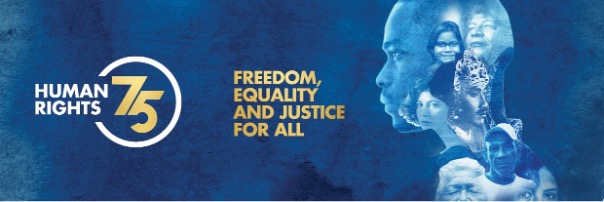 Commemorating the 75th anniversary of the Universal Declaration of Human Rights
Commemorating the 75th anniversary of the Universal Declaration of Human Rights
Human Rights 75 high-level event. 11 – 12 December 2023, Palais des Nations, Geneva, Switzerland.
The final push to hear the “Voices”
“The year 2023 will be remembered for its power to advance freedom, equality, and justice. Let us welcome a new era of progress launched with the concrete engagement of several countries, communities, leaders and youth from all disciplines and backgrounds,” said UN High Commissioner for Human Rights Volker Türk. The Human Rights 75 journey has ramped up many activities at local, national and regional levels, reflecting impressive diversity of events on all continents. These include debates, pledges, festivals, new partnerships, and support from sports persons, singers, parliamentarians, youth, business, civil society, across the UN family.
A central feature of Human Rights 75’s high-level event is the “pledging tree” that will become laden with countries commitments, initiatives and promises for a brighter future.
Human Rights on your doorstep
11-12 December is an opportunity for everyone to follow discussions and fast-moving developments on the future of Human Rights. The event is accessible to all with international sign interpretation and real-time captioning in English provided. The hybrid format means that the event takes place at the Palais des Nations in Geneva, Switzerland while connected to hubs in Bangkok, Nairobi, and Panama.
Learn more about the event and what is on offer in the virtual conference room through the programmes below. And check back regularly as more events and guests are added.
Format
- Hybrid event with participation across time zones and from different localities to build a universal movement.
- Geneva hub – venue: Room XX – Palais des Nations.
- Three regional hubs connected: Panama, Nairobi and Bangkok.
- And the possibility to follow the debates remotely thanks to our virtual human rights conference center.
Registration Register to watch the debates online via the Human Rights 75 Virtual Conference Centre.
Visit the countdown page
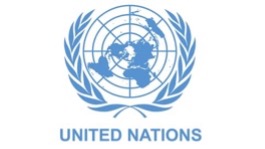 You can follow the meetings of the Human Rights Council by the United Nations Web TV:
You can follow the meetings of the Human Rights Council by the United Nations Web TV: Exhibits, Events, Courses, Calls for Papers
Psychologists in advocacy and policy-making
Psychologists’ education and professional expertise provide them with a deep understanding of issues such as poverty, unemployment, health disparities, violence, immigration, racism, and broader social injustices. This equips them to bring valuable insights to policy and decision-making. However, only a minority of psychologists actively participate in driving change. Our aim is to better understand the potential roles psychologists could play in policy-making and support their engagement by addressing their specific needs.
We invite you to contribute to this analysis with your own views and experience. This invitation stands whether you have already been involved in advocacy work, have only considered the idea, or have never seen yourself as an “agent of change”.
In the context of our project, we define advocacy as any action taken in support of social change, spanning from the group or community level, to organisational sphere and, ultimately, to governmental rules and regulations.
This initiative is developed under the American Psychological Association’s Global Psychology Learning Leadership Institute (LLI).
Please contact grigorean.emilia01@gmail.com should you have any questions related to this form.
We are grateful for your contribution!
Ana KRALJEVIĆ, Doga AVSEVEN & Emilia GRIGOREAN
Welcome to Human Dignity and Humiliation Studies (HumanDHS)
HumanDHS is a transdisciplinary academic field and a global network and collaborative community of concerned scholars, researchers, educators, practitioners, creative artists, and others. We wish to stimulate systemic change, globally and locally, to open space for dignity, mutual respect, and esteem to take root and grow. Our goal is to foster healing from cycles of humiliation throughout the world, ending systemic humiliation and humiliating practices, and preventing new ones from arising. We wish to open space for feelings of humiliation to be transformed into action that dignifies the lives of all people and replenishes our planet.
The urgency of seeding dignity. Workshop Friday December 8, 2023, 11.00 – 4.00 EST. Free registration
PUBLICATIONS
 Critical Essays on Knowledge, Inequality and Belonging.
Critical Essays on Knowledge, Inequality and Belonging.
Edited By Elisabeth L. Engebretsen and Mia Liinason, Routledge Open Access, 30 August 2023.
In offering important critiques of the multileveled colonial, racist, and sexist underpinnings of contemporary neoliberal society, the chapters in this book expose and challenge hegemonic orthodox knowledge regimes that define and contrast identities within an often unacknowledged colonial epistemology of humanity and its sub- and in-human Other. By insisting on making visible the epistemologies of colonial knowledge regimes that operate
in neoliberal governance, the contributing authors stress the importance of location, experience, pain, and (story)telling from a position of marginalisation, othering, and exclusion to counter hegemonic and hierarchical structures of differentiation and disenfranchisement.
Taken together, the volume as a whole exposes the power struggles that emerge when powerful figures and ideologies of authority attempt to manage and control different populations historically and today. Building on the significant insights and contributions of previous scholars to post- and de-colonial scholarship in the Nordic region, Transforming Identities in Contemporary Europe attempts to further contribute to this area of research by broadening the methodological and geopolitical scope of ‘the Nordic’, and utilising the conceptual lens of identity as a nodal point from which experiences and protesting powerful authorities and their governance can be fruitfully examined, contrasted, and challenged.
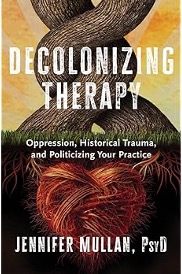 Decolonizing Therapy: Oppression, Historical Trauma, and Politicizing Your Practice.
Decolonizing Therapy: Oppression, Historical Trauma, and Politicizing Your Practice.
Jennifer Mullan, W. W. Norton & Company, November 7, 2023.
A call to action for therapists to politicize their practice through an emotional decolonial lens. An essential work that centers colonial and historical trauma in a framework for healing, Decolonizing Therapy illuminates that all therapy is―and always has been― inherently political. To better understand the mental health oppression and institutional violence that exists today, we must become familiar with the root of disembodiment from our histories, homelands, and healing practices. Only then will readers see how colonial, historical, and intergenerational legacies have always played a role in the treatment of mental health.
This book is the emotional companion and guide to decolonization. It is an invitation for Eurocentrically trained clinicians to acknowledge privileged and oppressed parts while relearning what we thought we knew. Ignoring collective global trauma makes delivering effective therapy impossible; not knowing how to interrogate privilege (as a therapist, client, or both) makes healing elusive; and shying away from understanding how we as professionals may be participating in oppression is irresponsible.
Join the global movement that is radically reimagining the old mental health paradigm. Heal your past. Honor your history. Cultivate liberation. Harvest joy. For too long, the goal of therapy has been to help people adapt to oppression and cope with the ongoing trauma of colonial, capitalist and white supremacist systems. Well the old paradigm is crumbling, and frankly it’s long overdue.
CONTACTS: Published by the Global Network of Psychologists for Human Rights – www.humanrightspsychology.org
Disclaimer: The website of the Global Network of Psychologists for Human Rights (GNPHR) contains articles, events and news about the domain where psychology and human rights intersect. The information presented in this Bulletin, does not imply that the GNPHR shares the views and beliefs in the articles.
- @GNPHR1
- How to get involved – read how you can contribute to the global network
- Consider contributing a Blog/Commentary
- News and Bulletins from the GNPHR – Subscribe to GNPHR
- Email addresses:
Ways to Participate in Global Network Activities
- Student/young person representation on the GNPHR Steering Committee
Are you a student or young person (under 35 years of age) interested in joining the GNPHR Steering Committee? The GNPHR invites applications. Role description: The terms of reference broadly define the roles of all members of the steering group. Individual steering committee member tasks include : Each member will take responsibility for one of the following: (a) A specific content area or group of areas; (b) A specific project (e.g. survey of human rights reporting mechanisms; survey of educational programs in psychology/human rights, etc); (c) A specific function: for example, organizing a newsletter; soliciting commentary or newsletter blogs; seeking grant possibilities; outreach to general human rights organizations; outreach to psychology organizations or (d) Consultation: Working in collaboration with other organisations where there is a specific issue. In addition, from time-to-time, short-term subgroups may work on specific projects. In addition, for the student member, there would be a specific remit to liaise with other organisations that are focussed on younger people, psychology and human rights. Click here if you are interested in being nominated. - Share Your Experiences and Examples
One of the best ways to illustrate the intersection of psychology and human rights is through example. We are looking for examples of your encounters with human rights issues in your professional life. You might describe a time when you protected (or failed to protect) human rights, or advocated for what you saw as a human rights issue. The events might be in your clinical, research, academic, applied, or volunteer work. Please send your narrative / story (500-1000 words) to Marlena Plavšić (marlena_plavsic@hotmail.com). We will compile these for publication in the GNPHR Bulletin and on the website. Please also indicate if you would like your stories to remain anonymous. - Share your Expertise and Opinions
We invite you to contribute a blog or opinion piece on general human rights issues; human rights education or strategies for raising the profile of human rights within psychology or your professional life. Students are welcome to contribute, including on student needs for learning about and addressing human rights. Please contact the GNPHR Blog editor (blogeditor@humanrightspsychology.org) with ideas for the article you would like to write! - Send articles/news/events
If you come across a human rights article or news, or know of an upcoming hunman rights event, please send for publication in the Bulletin. Send to the Bulletin editor Polli Hagenaars (polli.hagenaars@gmail.com).

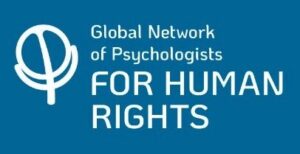
thank you, I really need this help. I’m making a formula to stop world war 3, so I need a similar theme. Thank You.